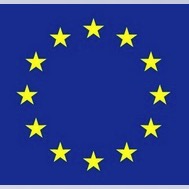17/01/2019 - Projects
Kırşehir, Turkey First transnational meeting of the EARLYCODE Erasmus + project

 Reading time: 2 minutes
Reading time: 2 minutesThe main goal of the project is raising the preschool teachers' competencies and training opportunities to make pupils keen on future's world.
The EARLYCODE project was submitted and approved by the Turkish Agency. The lead partner is the Ahi Evran University Faculty of Education, Computer Education and Instructional Technology in Kırşehir. The partners, in addition to the School of Robotics, come from Romania, Lithuania and the United Kingdom.
ERARLYCODE is an Erasmus plus project co-funded by the European Union (Agreement n° 2018-1-TR01-KA203-058832 This contract, drawn up under the Erasmus+ Programme (REGULATION (EU) No 1288/2013) )
Project website: http://earlycoders.org/
The need for an early digital education programme, or education in the use of digital tools and coding, is supported by many European pedagogues and educators in order to ensure that young people are not only users of digital tools, but are enabled, from an early age, to understand how they work.
Early and well-organised coding and educational robotics from an early age, 5-6 years old, designed according to children's abilities and attitudes, can also ensure that all children, even those with particular disabilities or cognitive problems, have access to a gradual understanding of this world that will be theirs in the near future.
The project EARLYCODE is to build capacity within the education sector to provide high quality algorithmic thinking teaching at preschool level in the partner countries. The project will specifically target higher education students studying to become preschool teachers and in particular those who have a specific interest in (STEAM) areas.
The specific objective of the project will be upskilling Preschool Teacher Candidates on Introduction to Coding Education and make them well equipped to inspire and teach children computational thinking principals utilising effective, innovative and engaging methods.
There are several results expected related with the project. In the project time line, intellectual outputs, multiplier events and learning, training, teaching activities.
The results will include:
Open Educational Resources (OER) for teachers and students to support the developed curricula (in English and in national languages);
A web portal to support virtual collaboration within and beyond the partnership to establish a community of practice including students, teachers and teacher educators;
“A well designed classrooms setting” what is supposed to be here? Classroom setting encouraging for coding?
Throughout two years of project activities the candidate teachers will learn organizing their classroom to implement project activities. They will be personalizing settings for coding; environment where small robots will be programmed by children. These materials will be carpets done by teachers and by children where robots will be moving; drawings and landscapes to illustrate the robots stories; other object made by children to populate their environments. All these additional materials are important to support children-robots interaction, to ignite their creativity, and story telling skill.
Implementation of the project outputs will contribute to enhance sustainability of the project results in the scope of training and learning materials to ensure reach of several goals of sustainable development – quality education, gender equality, industry, innovation and infrastructure and partnerships for the goals.
Results from the Intellectual Outputs:
1. Curriculum for Preschool Teaching Undergraduates
Before the development of Higher Education curriculum, it is necessary to clearly articulate what information and skills are necessary for Preschool Teaching Undergraduates to be able to teach computatinal thinking and introduction to coding. For that purpose, at least 30 teaching undergraduates from each partner university will be applied questionnaire to evaluate their knowledge. Results of the questionnaire will be analysed and conclusions will be submitted by APEC in a TNA Report. This report will be a basis for future Curriculum.
2. Preparation of Teaching Materials for the Computational Thinking and Introduction to Coding
The project will develop ER for preschool education using robotics kits; it will validate a robotics based pedagogy & implement the case studies for early learners (4-6 years old).
3. Handbook for the Computational Thinking and Introduction to Coding
This handbook will provide core teaching resources and materials (pedagogical information and tips about kids learning, their learning motivators, learning style and involvement etc.) along with links to relevant resources. This resource will be available in each partner country and will link to relevant National and International Resources which can be used in each country. It will be designed to allow for local updating as required.

